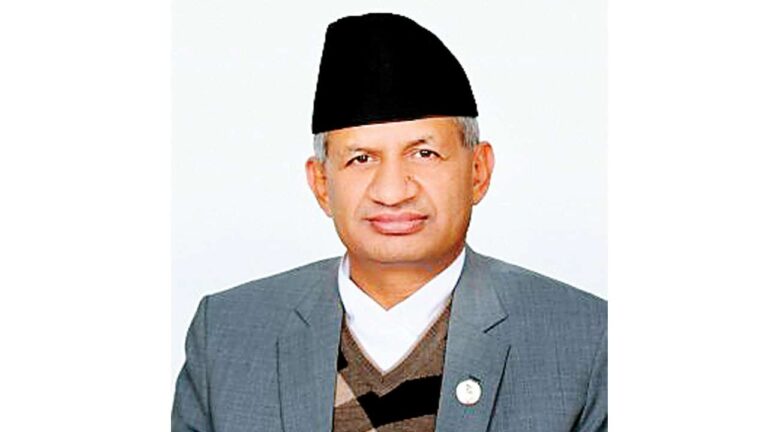
Minister for Foreign Affairs Pradeep Kumar Gyawali said Nepal and India have agreed to resolve the contentious boundary issues and the momentum of overall engagement between the two countries would continue despite differences in one area.
At a talk programme held at the Indian Council of World Affairs at New Delhi today, Minister Gyawali said that Nepal and India have shared over 1,800 km long international boundary and the mapping has remained to be completed in only in the stretches of some kilometers.
The visting minster further noted Nepal’s desire to start the conversation with a view to resolving the question of boundary alignment in the remaining segments.
“Finding an agreeable boundary alignment in these segments may not only take us to the stage of fully settled international boundary but may also help generate positive vibe in public sentiment as well as help instill greater degree of trust and confidence in bilateral relations”, he believed.
Minister Gyawali went on saying that “We want to see a 21st century Nepal-India relationship, which is forward looking and firmly founded on equality, mutual respect, justice and understanding of each other’s concerns and sensitivities”.
Nepal is not a competitor of India in trade and making Nepal economically strong serves India’s interest too, he argued.
“Nepal wishes to have a partnership that helps overcome Nepal’s structural bottlenecks as landlocked and least developed country; a partnership that fosters mutually rewarding and beneficial trade relationship; a partnership that propels the process of industrialization, flow of investment, transfer of technology and connects our economies in value chain; a partnership that leads to better utilization of our natural resources for sustained economic growth and development; and a partnership that makes our relations impactful to the lives of our peoples”, Minister Gyawali asserted.
He added that Nepal-India friendship stands on a robust foundation. “Our connection is deep and engagement comprehensive. Yet we should be mindful equally that healthy relations require continuous nurturing, creative thinking, promptness and readiness to understand each other in changing dynamics”.
Our foreign policy priority begins at our borders, Gyawali said, adding “Our intention is to strengthen the foundation of our relations; to expand and consolidate it; and to bring the relations to the next level. Our objective is clear and unambiguous”.
“With the same objective, we created an Eminent Persons’ Group in 2016 and mandated them to review the entire spectrum of Nepal-India relations and recommend measures to upgrade them in the changed context. EPG has done its work and our job is to receive their report and implement”, he said.
One of the tasks assigned to EPG was the task of recommending the inputs for the review of past treaties and agreement, including the Peace and Friendship Treaty of 1950, he noted, adding “We have agreed to revise, adjust and update the Treaty to better reflect the current reality and to further consolidate and expand our friendship”.
India is aspiring to be a global power, both politically and economically, he said Nepal’s ambition is to be a more stable and prosperous country. “As a close neighbour, we are delighted to see India’s incredible achievements: be it the infrastructure build-up or industrialization; be it the advancement in technology, or in terms of the seven decades of successful democratic practice”.
Minister Gyawali expressed his belief that Nepal too will be availing the COVID-19 vaccines that India has introduced and started vaccinating its people.
On another note, he said Pancheshwar project has come atop in the priority and our recent conversation on this transformative mega project has been encouraging. “Once realized, Pancheshwar will not only be a big project on its own but also set a success story of how we can make arrangements for cost and benefit sharing in harnessing of our vast water resources”.
“We have made noticeable progress on some of our flagship connectivity projects. Our Prime Ministers inaugurated a year ago Motihari-Amlekhgunj Petroleum Products Pipeline, the first cross border pipeline in the region. We are talking about further expansion of pipeline infrastructure”, he explained.
Integrated Check-posts have been developed and operationalized at two major border points streamlining the cross-border movement of goods, the minister shared.
Nepal was among the few countries that remained independent throughout its history, he siad, adding in this very fact is rooted the abounding sense of national pride of today’s 30 million Nepali people.
The importance of connectivity cannot be overemphasized, he said, adding “We need to further expand air connectivity, air routes and road and rail linkages. Added to these are railways, waterways and other components of cross-border transit, transport hardware and software”.
“We hold dearer than anything else the principles of sovereign equality, mutual respect and non-interference”, he asserted.
Source : RSS,






